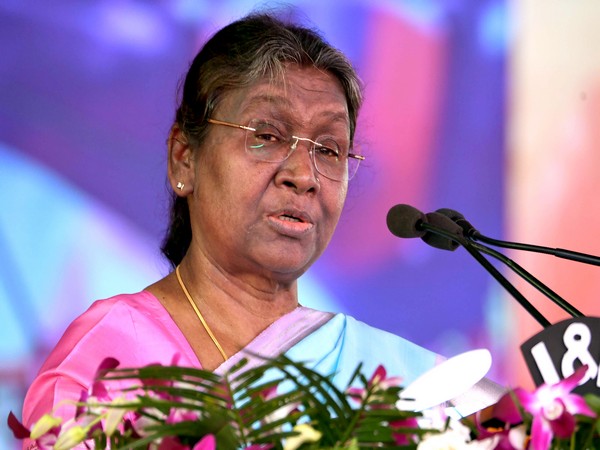President of India, Smt. Droupadi Murmu, inaugurated the first Asian Buddhist Summit, organized by the Ministry of Culture, Government of India, in partnership with the International Buddhist Confederation (IBC) in New Delhi. The summit brought together prominent Buddhist leaders, scholars, and policymakers from across Asia to explore Buddhism’s role in promoting peace, compassion, and sustainable development.
President Murmu's Address: India as the "Land of Dharma"
President Murmu highlighted India’s enduring spiritual heritage, describing it as the "blessed land of Dharma." She emphasized that India has, through history, fostered pathbreaking spiritual leaders and mystics, notably Siddhartha Gautama (Buddha), who attained enlightenment at Bodh Gaya. She praised Buddha's message of compassion and peace, embodied in his guiding principle, Bahujana sukhaya bahujana hitaya cha (for the welfare of the masses).
“The Buddha’s timeless wisdom,” President said, “remains essential in today’s world as we strive for harmony within ourselves and with the world.” She noted the summit’s potential to inspire a greater understanding of Buddha’s teachings globally.
Union Minister Gajendra Singh Shekhawat: Reinforcing the “Dhamma Setu”
Union Minister for Tourism and Culture Shri Gajendra Singh Shekhawat underscored the significance of Buddha dhamma (teachings of the Buddha) as a way of life promoting harmony, compassion, and love. In his remarks, he spoke about India’s role as Buddha dhamma’s Janma Bhumi (birthplace) and reiterated India’s commitment to preserving Buddhist heritage and fostering cross-cultural Buddhist bonds. Minister Shekhawat also detailed initiatives like preserving heritage sites, promoting Pali studies, and developing Buddhist pilgrimage circuits as part of a “Dhamma Setu” – a spiritual bridge connecting Asia’s Buddhist nations.
In light of global challenges, he added, Buddha’s Middle Path and Four Noble Truths offer enduring solutions to modern-day issues. He noted that the summit also emphasizes strengthening Buddhist diplomatic relations, fostering social harmony, and promoting cultural and scholarly exchanges across Buddhist nations.
Kiren Rijiju and Contemporary Relevance of Buddha Dhamma
Union Minister of Parliamentary Affairs and Minority Affairs, Shri Kiren Rijiju, addressed the gathering, focusing on Buddhism’s relevance in promoting inclusivity and intercultural dialogue in a globalized world. He shared India’s efforts to integrate Buddha dhamma into the modern context and inspire collective actions toward a peaceful, compassionate world.
A Historic Summit for Peace, Unity, and Cultural Exchange
The first Asian Buddhist Summit presents a unique platform for discussions on key global and social issues through the lens of Buddhist principles. Delegates are committed to advancing Buddhist tourism, preserving ancient manuscripts, and promoting a compassionate, sustainable world through collective reflection and action. The summit reaffirms the commitment of Asian nations to continue Buddha dhamma’s legacy and strengthen its relevance for future generations.











